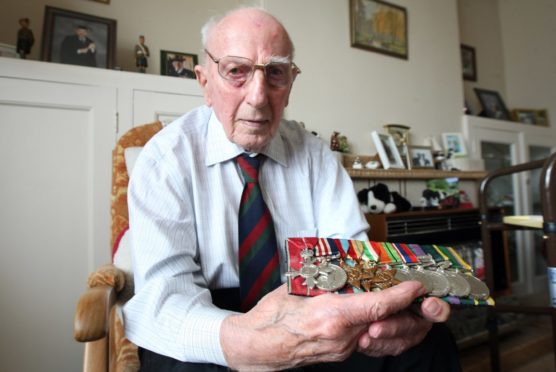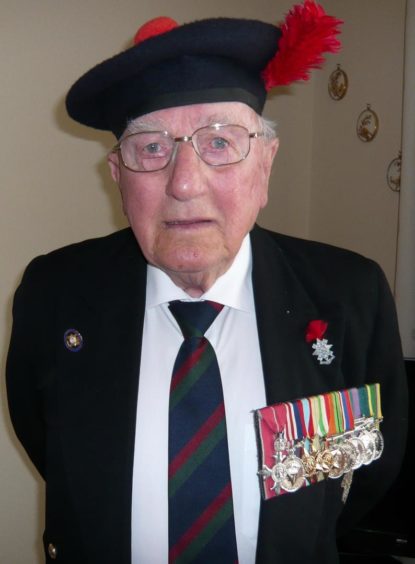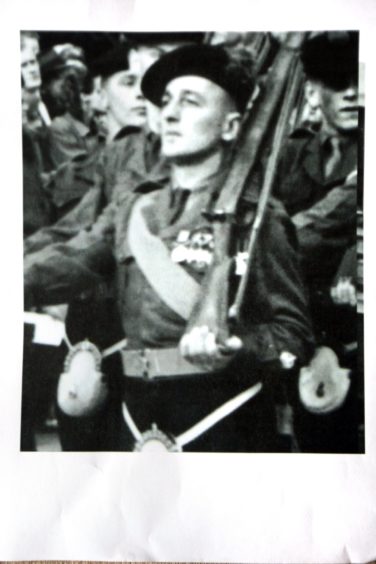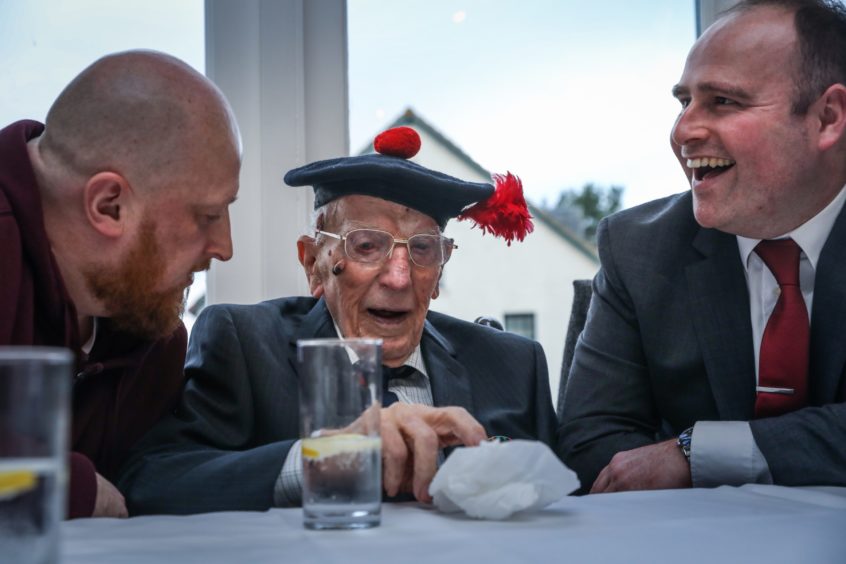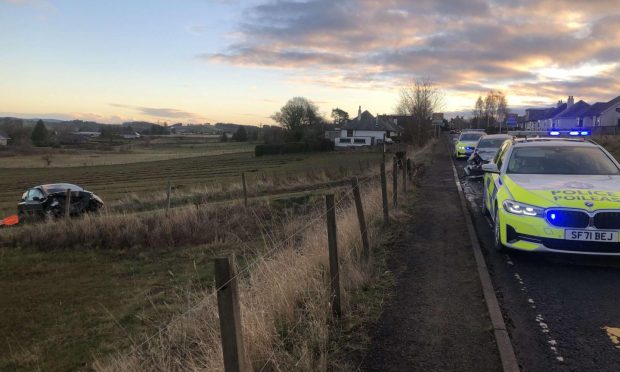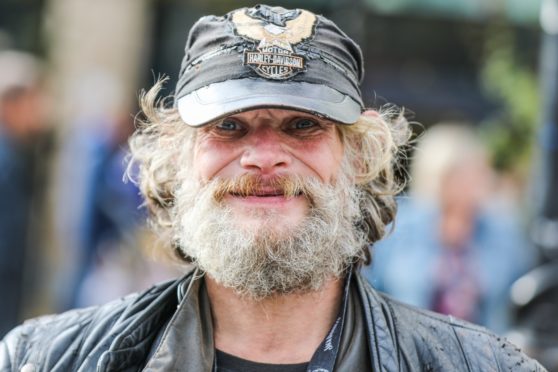Major George Grant, MBE, who was awarded the Military Medal for his bravery in the Italian campaign of the Second World War, has died just weeks before his 101st birthday.
Born and brought up in Tayport, George was one of five children.
He endured a series of family tragedies with the death of his sister in childhood and the loss of one of his three brothers who was killed while building railways.
Another brother, Ronald, was a victim of the 1959 Mona lifeboat tragedy.
Ronald Grant was the coxswain of the Broughty Ferry lifeboat which capsized in the early hours of a December morning as it went to the aid of the drifting North Carr lightship in St Andrews Bay. All eight of the RNLI crew were lost.
George joined the 6th Battalion, The Black Watch at the age of 17 and was sent to France two years’ later at the outbreak of the Second World War.
He was rescued from the beaches of Dunkirk after the Germans forced his unit back to the French coast.
Honoured for bravery at Monte Cassino
Soon after, George was sent to North Africa with the 51st Highland Division and there he escaped death after being shot by an enemy sniper – the bullet passing millimetres from what would have been a fatal outcome.
He then fought in the Italian campaign from 1943 and Mr Grant’s gallantry at the Battle of Monte Cassino in the first half of 1944 saw him honoured with the Military Medal.
After a conflict which began at the start of the year, George and his battalion were involved in an attack on May 14 in a determined bid to break German resistance.
The soldiers were going to advance behind the cover of tanks, but smoke and heavy mist meant the armoured crews could not navigate their way across the battlefield.
Surrounded by German troops and the threat of mines, George walked in front of the tanks with a white tissue to guide them on.
The capture of Monte Cassino followed days later, but at a heavy cost to the Allied forced with more than 50,000 casualties.
George received his Military Medal from King George VI later that year.
Awarded MBE for services to Army Cadet Force
He retired from the Army in 1962, but maintained a military involvement after assuming a role with the local cadet force, continuing in that position for many years.
His dedication to the Army Cadet Force was recognised with the award of the MBE in 1983 for services to the organisation.
George was proud to receive the honour from Her Majesty The Queen.
He and wife, Jean, were married in Tayport in 1946 while George was based with the Army at Crail.
Mr Grant, who lived in Rodd Road, Dundee, was predeceased by his wife in 1998.
He is survived by the couple’s three children, George Jr, Rosalyn and Nigel, and grandsons Paul and Steven.
On his 100th birthday at the end of January, he enjoyed a large gathering which included former Black Watch colleagues and raised a four-figure sum for his favourite charities.
His son, Nigel, said at the time his father was a “living history book” who had survived a remarkable life with amazing stories to share of his military career.
Retired Black Watch Major Ronnie Proctor, the secretary of the Black Watch Association, said Mr Grant was a figure who has an “amazing and varied career”.
“He was a kindly, fatherly figure with a remarkable memory of the events he had been through,” said Mr Proctor, the Provost of Angus Council.
He recalled a Black Watch Association trip they were part of together to the scene of the Monte Cassino gallantry which saw Mr Grant recognised with the Military Medal.
“George was an unassuming and very nice man,” he added.
“He was a great supporter of the Black Watch Association and contributed greatly to all aspects of it throughout his life.”
Mr Grant’s funeral will take place early in the New Year but will be a private service due to coronavirus restrictions.
